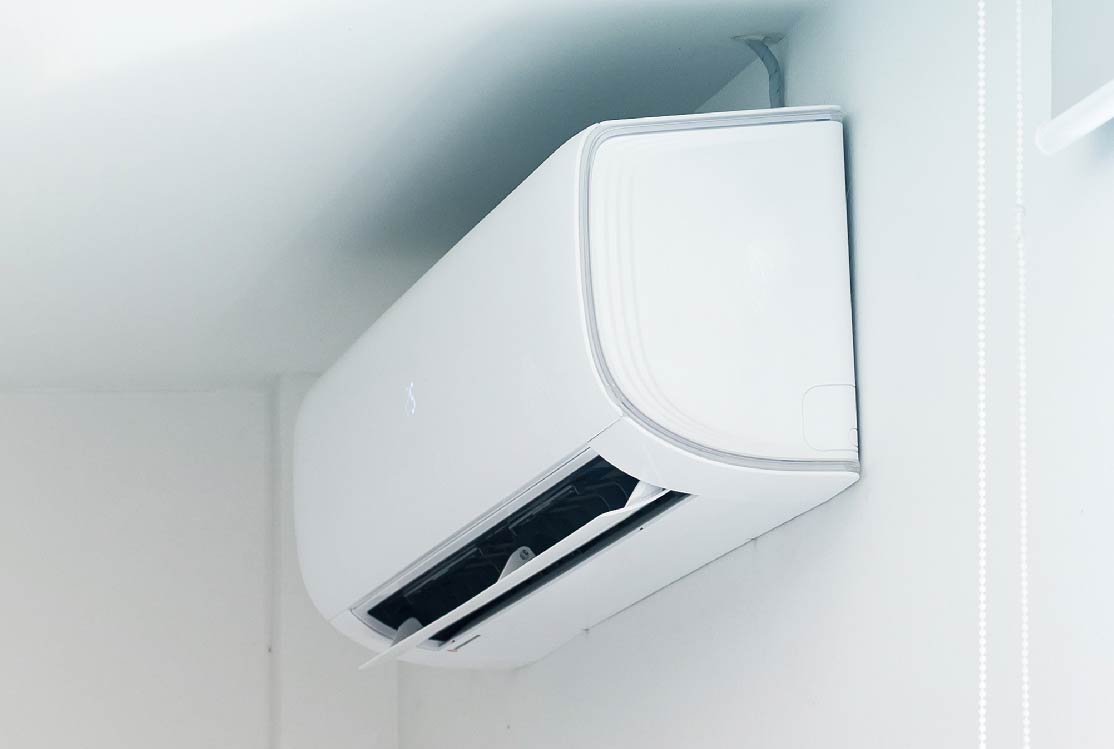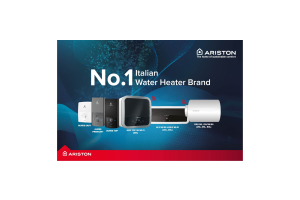7 Air-con myths, debunked
Our expert sets the record straight on the most common misconceptions.
With all the information out there about airconditioners, it can be hard to differentiate fact from fallacy. For instance, is it really necessary to service your air-con unit annually, and if your home is pristine, can you do away with cleaning your air-con filter regularly?
Unfortunately, there are many misconceptions out there that might be costing you money and affecting the lifespan of your air-con unit. Tan Kin Sek, Senior Operations Manager at Gain City Engineering, sheds light on the most common ones.
Myth 1: Switching to a bigger, more powerful air-con unit provides better results.
Fact: “Air-con units are designed to work at a specific rate. A large air-con unit will therefore cool your home a lot faster than a small one, but bear in mind that it may also lead to greater power consumption and thus, more expensive power bills,” Kin Sek points out. If you find that your current air-conditioner isn’t cooling your rooms sufficiently or fast enough, and there’s nothing wrong with it, then you may wish to upgrade to a bigger unit – but it’s best to ask an expert to recommend a suitable size. The rightsized unit will do the job for the space that you have, without consuming more energy than it needs to.
Myth 2: Skipping air-con servicing and maintenance will not make a difference to the lifespan of the air-conditioner.
Fact: Neglecting to service your air-con unit will lead to a steady decline in its cooling performance, impacting its effectiveness and efficiency and causing it to consume more energy in the long run, according to Kin Sek.
Air-con experts recommend a thorough servicing (or chemical wash) at least once every 12 months, while servicing or maintenance should be done on a quarterly basis. Some problems associated with not servicing and maintaining the unit regularly include the accumulation of dust on the air filters (this can clog the filters and worsen the air quality in your home), loss of cooling function, water leakage and a reduced lifespan.
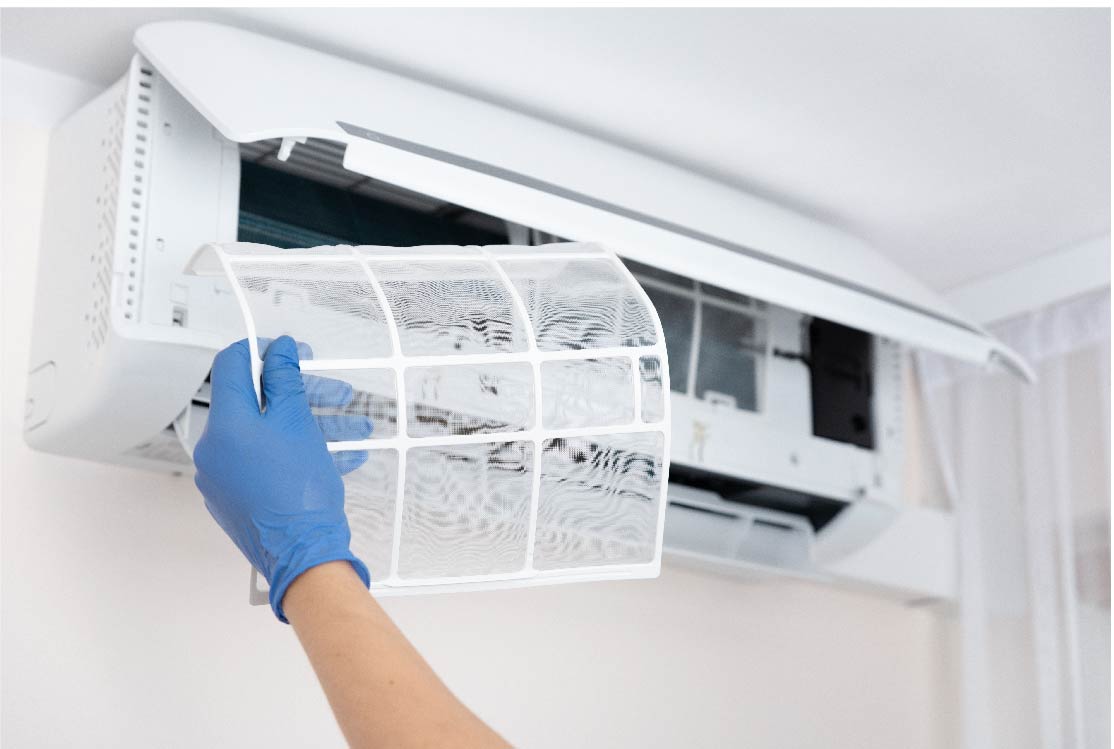

Myth 3: If I vacuum my home every day, I don’t have to clean my air-con filter regularly.
Fact: No matter how proficient you think your housekeeping skills are, it’s still important to clean your air-con filter regularly, simply because dust is everywhere.
“Dust that’s floating in the air inevitably returns to the air-con unit and makes its way through the filter,” says Kin Sek.
A dust-covered air filter can cause a host of problems: It may result in lower airflow at the indoor unit, forcing the latter to work harder than it needs to, and prevent the unit from cooling the room to your desired temperature. Additionally, as it builds up, the dust may collect moisture, causing mould to develop on the filter. Mould is known for triggering skin and respiratory allergies, and it can make your family sick.
Filters are designed to keep out dust and allergens, so it only makes sense to clean them regularly.
Myth 4: All air-conditioners cost the same to run.
Fact: Kin Sek says that inverter air-conditioners are actually a little cheaper to operate. Generally, these save up to 30% of electricity compared to non-inverter models because they are designed to be more energy efficient.
“However, when it comes to maintaining your air-con unit, though, I’d say that the cost is about the same across all the different brands,” he adds.
Myth 5: There’s no point replacing an old air-con unit until it breaks down.
Fact: Replacing the old unit with one of the newer, more technologically advanced models may save you money and actually be better for your health, so why wait for the old aircon to break down before enjoying these benefits?
“Look for systems with new technology – inverters use less electricity, for example, while models with ionisers provide cleaner air,” Kin Sek explains.
If you are confused by how some of the newer designs work or aren’t sure which model suits your home, Kin Sek suggests getting professional advice.
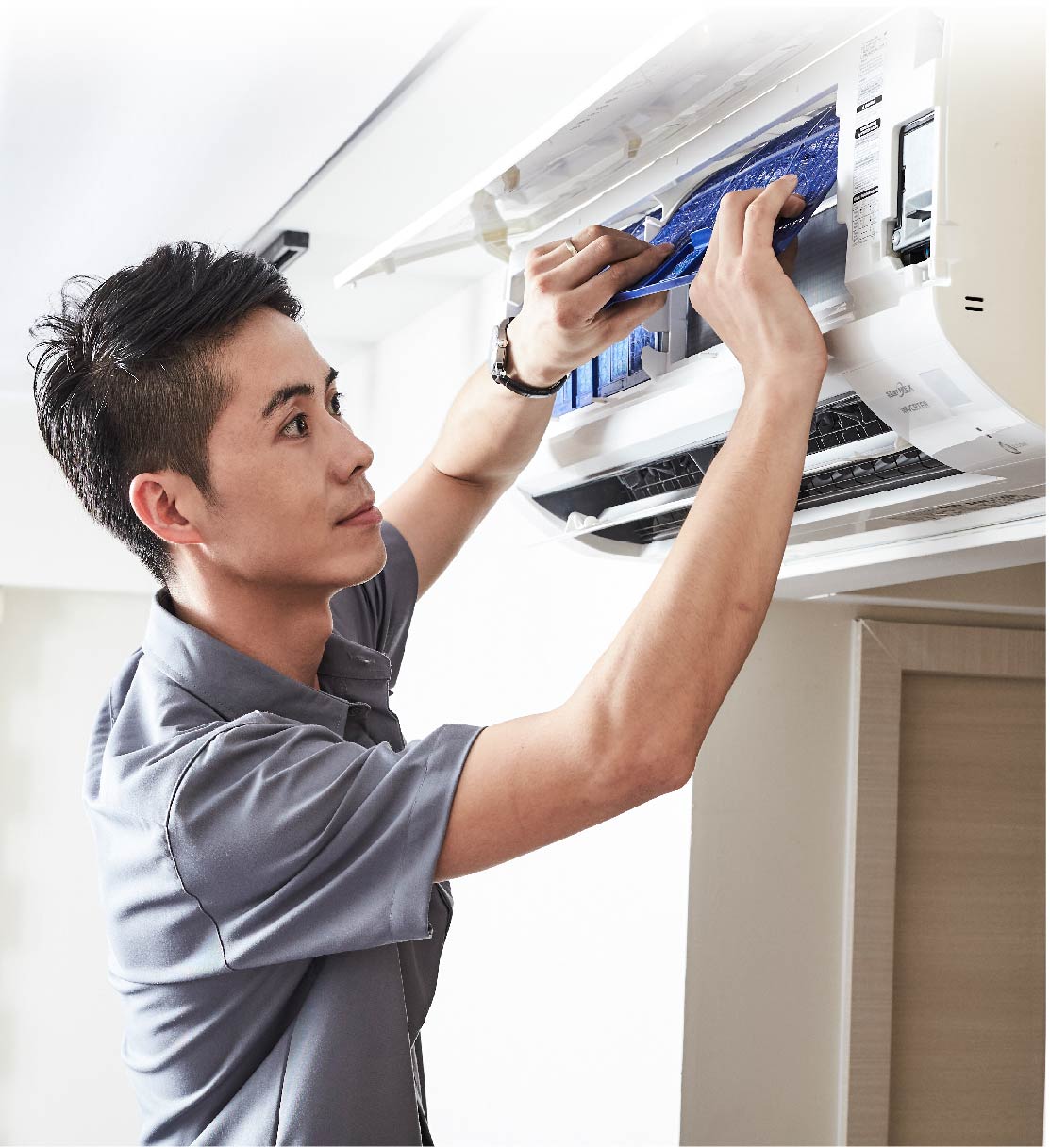

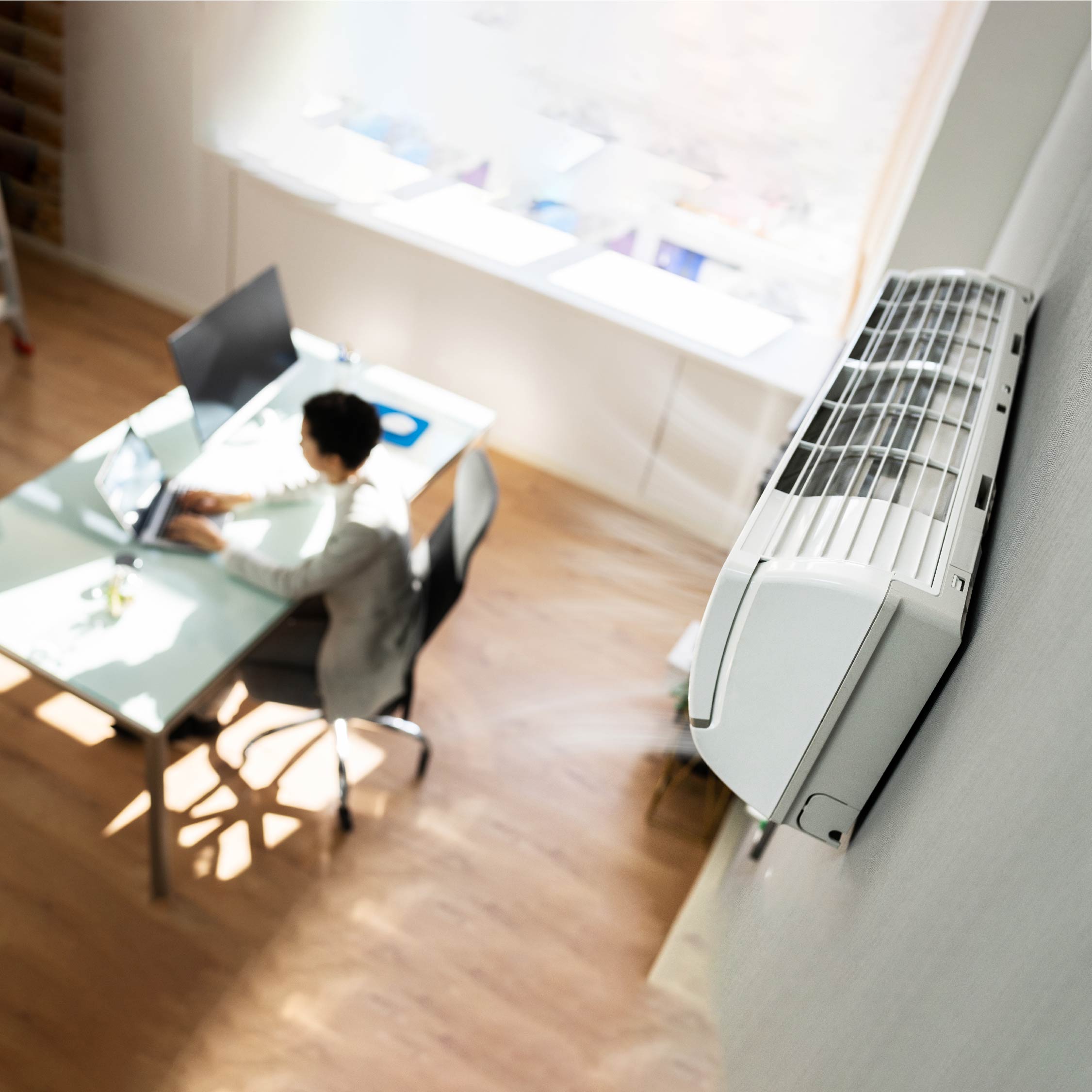

Myth 6: Fancy features, such as a human presence sensor, automatic de-icing and so on, are just sales gimmicks.
Fact: Each feature or function has a purpose and meets a specific market demand, says Kin Sek. If you’re not sure which ones meet your family’s needs, you should ask an expert for advice.
Some popular features include an anti-bacterial filter to minimise indoor air pollution; Wi-Fi connectivity for hands-free control; and Sleep mode to help you save on electricity bills when the unit is not in use.
Myth 7: Dropping the temperature significantly will cool the room faster.
Fact: Lowering the temperature will cool the room for sure but it may not occur as quickly as you want it to. This is because your air-conditioner works at a specific pace to cool the air, so it doesn’t matter whether you drop the temperature by a couple of degrees or 10.
You might be able to cool the room faster if you also use the higher fan speed setting, says Kin Sek. However, he points out that if the air-con unit is undersized, you may not achieve the temperature you desire.
